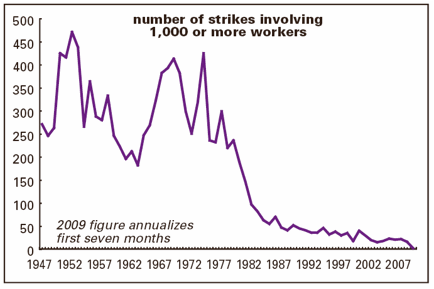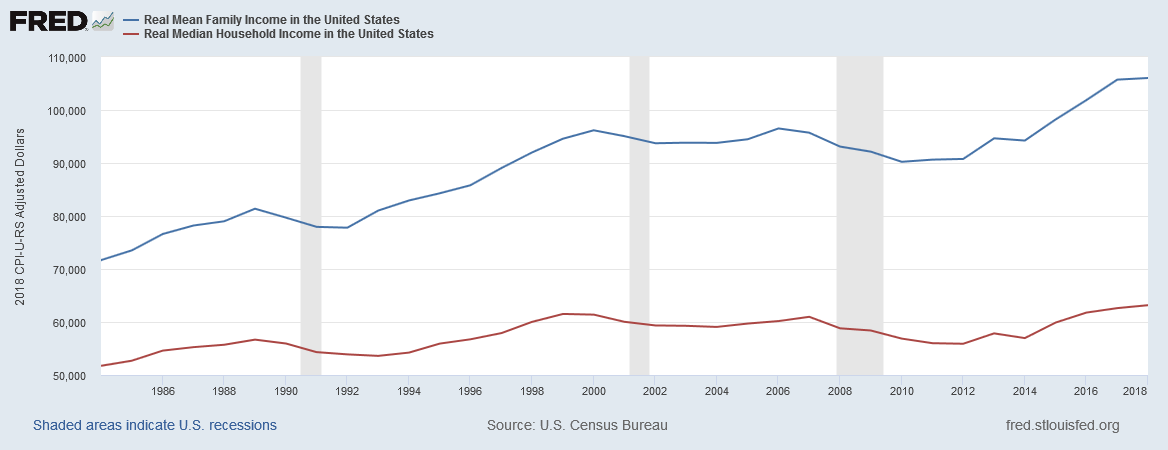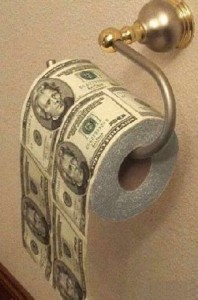Since it’s coming up on Labour Day weekend here in Canada, I thought I’d write a basic post on labour unions.
There’s been a vast effort, funded by huge amounts of money, to discredit unions and say they’re bad for workers.
That’s simple nonsense, but as with things like climate change denial, nonsense backed with billions of dollars is effective.
So, let’s run through the simple logic.
When we negotiate to get a job, or for a raise, in almost all cases we are negotiating with a group–the people who control a company, who are more powerful than us. They have more money (d’uh), and we need the job more than they need us. There are exceptions, of course, and it’s a lovely position to be in, but the number of exceptions is minute in a job-based economy like ours.
Corporations hire workers to do something which, combined with the effort of other workers, will make money.
The amount of money they make from a worker is “what the worker produces,” or “what the worker is paid.”
In other words, a corporation wants to make as much money as possible from your work, while paying you as little as possible, because that is their profit: That’s what they make.
You want the opposite.
This is a straight up conflict of interest. There can be a compromise which satisfies both, but really, the group hiring you wants you to make as little as possible so they can make as much as possible.
And they are more powerful than you. Also, you need the job, more than they need you. Without a job, you will be homeless and probably die; without any individual worker, they can usually just hire someone else.
So there is an imbalance of both power and consequences: Your BATNA (Best Alternative To A Negotiated Agreement) is often shit.
Now, it isn’t always shit. In a really tight economy, which most western countries haven’t had since the early 70s, you can just get another job. There are less workers than jobs. But that hasn’t been the case for a long time–except for brief periods in specific locations or jobs, for decades. Where it is the case, companies work to change that, as fast as possible because they don’t want you to have alternatives.
This stuff is important for people who are not in management (which, in the old days, included bottom-level supervisors.) It is unimportant to senior executives, who are usually the people really running the company, and who are in effect negotiating with themselves for compensation. You’ll notice that they reward themselves well.
So, people who don’t control the company, and who are easily replaceable (again, most of us, despite many people’s over-inflated sense of self-worth), need to group up in order to have power. One person, or a few, are easy to replace.
If every line worker walks off the job and then pickets to prevent any other workers (scabs) coming in, the power equation changes.
Because most of us don’t study history, we have forgotten what unions won. At the start of the industrial revolution, people worked 12 hour days, 6 1/2 days a week. The jobs were dangerous, with maiming common, and badly paid. Peasants resisted being thrown off the land because being a feudal tenant with rights to the commons was vastly better than going to a city and working in a factory job (or even most clerk jobs). You worked less, controlled your own work, were less likely to be maimed and had a ton more days off.
It took over a century to turn jobs into what they are now, with the 40 hour week, a lot less maimings, and so on.
Corporations are groups. When they negotiate against an individual they have an advantage.
Corporations almost always have more resources and power than any individual or small group with whom they are negotiating over a job. If you were richer, or more powerful than them, you probably wouldn’t be going to them for a line job.
So what corporations want is to negotiate as a group, with more money and power, against individuals.
Only a complete bloody moron would find it either smart or fair for workers to acquiesce to this. It is not in their interests. The people who control corporations (not own, control) want to make the most money possible, so do workers.
Corporate officers, notoriously ruthless, understand this. Workers should too.
As for those not in a union, and jealous: Unions raise the wages of workers around them. Plus, get in a union if you can.
Don’t be a bloody sucker. Corporations hate unions because when unions are effective, they make less money and workers make more. That is all.
And if you want to know why workers keep having shittier and shittier lives in the US, well, here’s a lovely chart for you.

Strikes involving more than 1,000 workers
Support unions. Unless you’re a greedy, asshole boss, who thinks CEOs should earn 300x more than workers, in which case, rot in Hell.
The results of the work I do, like this article, are free, but food isn’t, so if you value my work, please DONATE or SUBSCRIBE.



 Meritocracy is the simple argument that the best person for the job should do it and that our system tends to put the best person for a job in the position.
Meritocracy is the simple argument that the best person for the job should do it and that our system tends to put the best person for a job in the position.
 Alright, so Germany has now introduced a zero interest bond. That means, given inflation, people will get back less effective money than they started with.
Alright, so Germany has now introduced a zero interest bond. That means, given inflation, people will get back less effective money than they started with. People like Pinker have been trotting out stats to claim that we’ve never been better off. Those stats are questionable, based on a definition of poverty that is beyond questionable. Meanwhile, in India, people eat less calories than they did 30 years ago. (I traveled in India and lived in Bangladesh 30 years or so ago. Eating less calories is unimaginably bad. That a small middle class and a new wealthy class has been created means little to those eating… less.)
People like Pinker have been trotting out stats to claim that we’ve never been better off. Those stats are questionable, based on a definition of poverty that is beyond questionable. Meanwhile, in India, people eat less calories than they did 30 years ago. (I traveled in India and lived in Bangladesh 30 years or so ago. Eating less calories is unimaginably bad. That a small middle class and a new wealthy class has been created means little to those eating… less.)